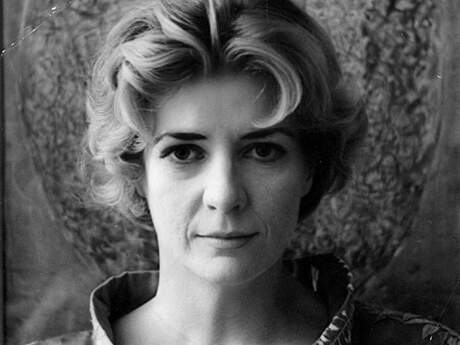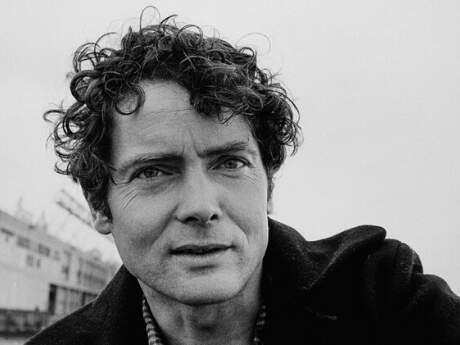First Loves
Marie Ponsot: First Loves

Thanks to lullabies, prayers, and Mother Goose, I had this much by heart before I could talk: Words say that people are present. And some words come together to make a place. It takes shape in the little stillness it causes to surround it, pleasing both speaker and listener. The first stanza that I knew to be a poem, I can still hear in my grandmother's voice:
Sunset and evening star
And one clear call for me,
And may there be no moaning at the bar
When I put out to sea.
She'd say it--maybe just the first line, as the rest hung in mind--with her face lit, turned to a radiant, fading sunset. What a word, "evening." I was read to, long after I could read. Bedtime meant Poems for Children; I'd ask for a long one, to stretch the time. Then mother would shut the book, pause in the lit hall, and recite, "I wandered lonely as a cloud / That floats on high o'er fields and hills...." for me to hum myself to sleep with, years before I noticed its content.
Mother's poems murmured. Not so my father's. I imitated his laughing rendition of "The Raven" in a fake-scary voice, as I joined in on the Nevermores. I relished the suspense, not of its story but of its sound. What a sound, Nevermore.
The first book I bought on my own--with saved lunch money--was H. D.'s Sea Garden. "It's out of print," said the Brentano's man. "Try the Holliday Book Shop." Fifteen, very shy, I hated to climb its tall red-carpeted stairs and face its elegant strangers. But I did. They had it. It cost five dollars. I took it home in subway bliss. H. D.'s sound was perfect, each syllable a step or gesture. It made other free verse (then the dominant convention) seem thick-eared: "bound round the ankles / with myrrh / with violets / and with half-opened myrrh..." Half-opened-yes. Bliss.
Next I bought Muriel Rukeyser's Theory of Flight. Its thrilling vigor set me scribbling in echo of her sharp American urgency, envying her knowledge of labor unions and real life.
How grateful I am for this chance to re-visit that early, unconsidered joy. I see I've explained nothing, and left out some of the best (the Odyssey, Baudelaire, Shakespeare, Gawain, Aucassin, more) of a long, dense, undifferentiated dream. I read and read and wrote and never thought, "I'm reading; I'm writing." I loved, unmediated, the imagining voice of poets (taking the outside in and the inside out, fusing the two given worlds) a voice I heard as the power to desire true free speech.
Originally published in Crossroads, Spring 1998.
More First Loves
Carolyn Kizer: First Loves
Coached by my parents, I learned to read before I started school at age five and a half. My mother, who kept meticulous notes on my reading, somehow omitted Gertrude Stein, whose poem "Grass" was the first I learned by heart:
W. S. Merwin: First Loves
One great stroke of luck for me, as I came to realize much later, was growing up hearing poetry read aloud from the Bible after breakfast—my parents reading to us, that is, before my sister or I had learned to read. The practice never developed much momentum, and it tailed off like the keeping of most journals, but it left in my ear the sound of my mother's voice (I knew my father's from church) reading psalms. The voice was the same that she used for everything but it was refracted by this remote, resonant, lingering language. I loved that more than I knew at first.


